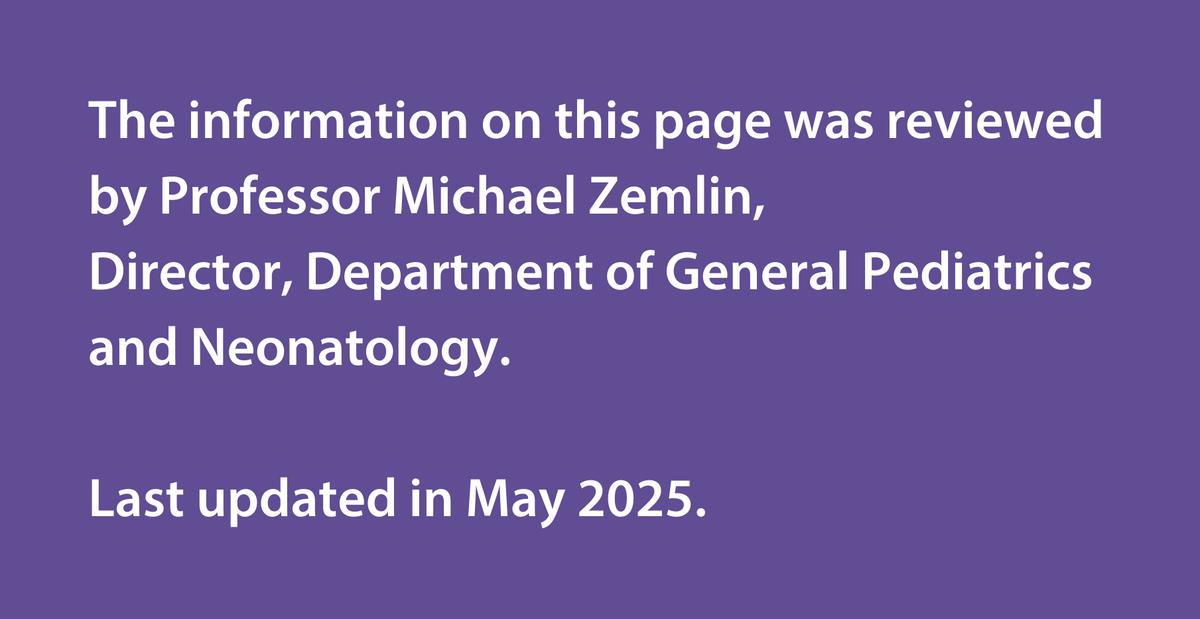
Please consider reading the information that is relevant to you and your little one(s). By doing so, you can avoid overwhelming yourself with too much information in an already distressing time.

Sugar (glucose) is crucial for the body's energy. Low blood sugar, a medical condition known as hypoglycemia, can occur in newborns, especially in those born preterm, small for their gestational age, or from diabetic mothers. Causes include limited glucose stores and increased need, often made worse by infection or low body temperature.
Symptoms of hypoglycemia include low muscle tension, lethargy, poor feeding, bluish skin, breathing pauses, low body temperature, and seizures⍰. Newborns at risk are screened with a blood sample⍰, usually from the heel, to measure glucose levels.
If hypoglycemia persists or is severe, glucose is given orally or intravenously⍰ to stabilize blood sugar levels. The amount depends on the baby's health. Talk to your healthcare team if you have concerns or questions about your baby's blood sugar levels.


GFCNI
Global Foundation for the Care of Newborn Infants
GFCNI works to improve newborn health by advocating for high-quality, accessible, and equitable care, long-term follow-up, and continuing care for both mother and infant in each region of the world.
Neopedia is your neonatal care encyclopedia about prematurity, hospitalization, and beyond.
Neopedia offers information and advice of a general nature, which are not a substitute for professional medical consultation or treatment by healthcare professionals. Always consult your healthcare provider for proper diagnosis and treatment.
Neopedia is powered by

and unconditionally supported by

© 2026 NEOPEDIA. All rights reserved
